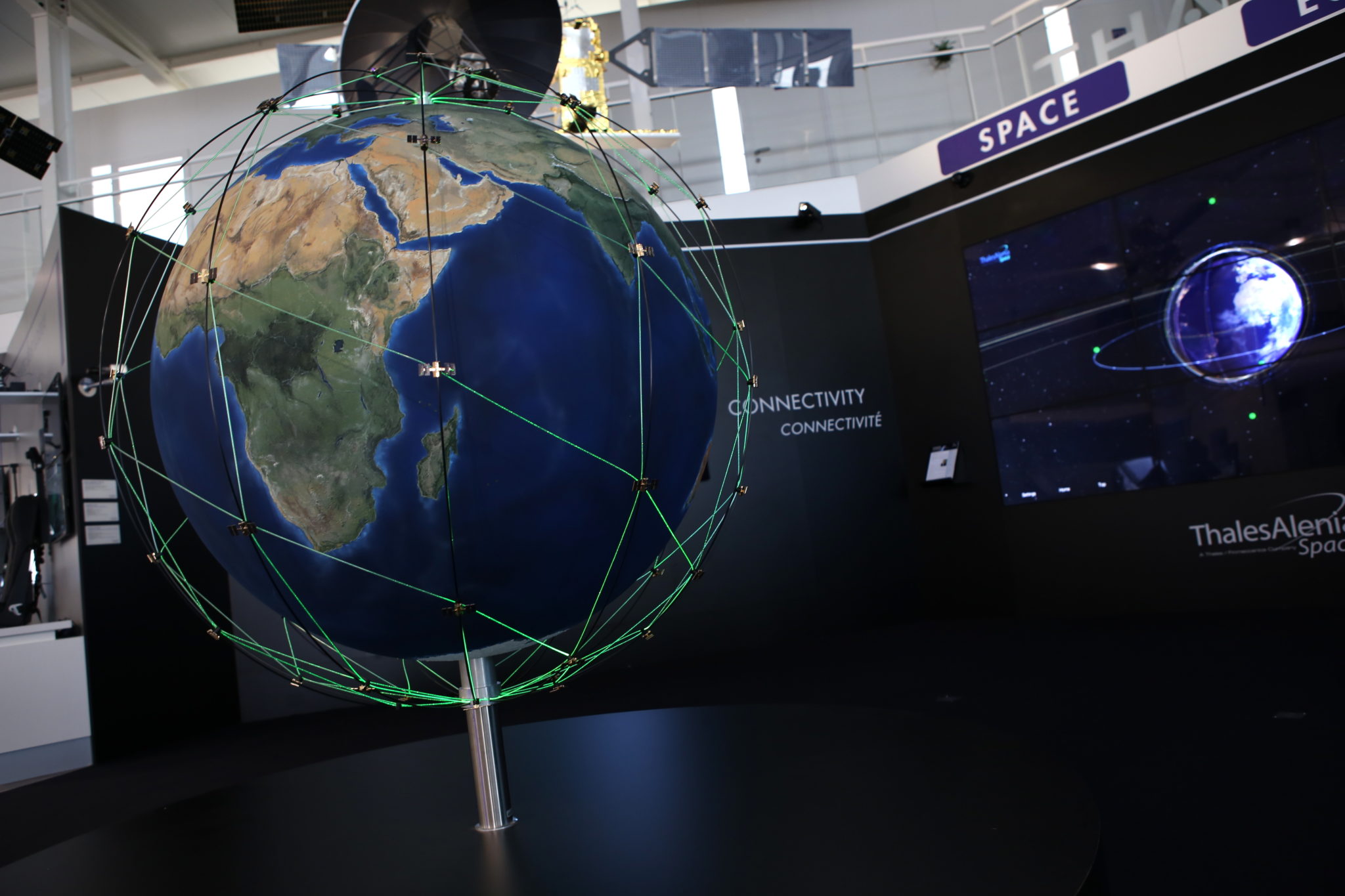Iridium Begins On-Orbit Testing of its L-Band Service

Thales Alenia Space’s representation of the Iridium NEXT constellation at the 2015 Paris Air Show. Photo: Photopointcom Thales
Iridium Communications has begun live testing on-orbit of its Iridium Certus service on operational Iridium Next satellites. Iridium Certus will be the company’s new global broadband service, offering safety and critical L-band communications connectivity through the Iridium Next satellite constellation.
The testing and validation process started on Sept. 25 and has involved uploading and activating software to the Iridium Next satellites already in orbit to enable Iridium Certus. As of Oct. 4, several Iridium Next satellites in operation were already undergoing live on-orbit testing. As each new additional satellite comes online in the coming months, Iridium Certus service will be activated through those satellites as well until all 66 operational satellites in the constellation are active, expected in 2018.
Iridium Certus terminals are being built by Cobham, L3 Communications, Rockwell Collins and Thales USA, all of which are participants in the Iridium Global Value Added Manufacturer program. Iridium expects to conduct live on-orbit tests on the terminals as they are ready.
According to Iridium, once all service classes are fully deployed, Iridium Certus will be capable of speeds up to 1.4 Mbps. Current on-orbit testing is focused on Iridium Certus 350, the initial service class to be introduced, which will deliver internet and voice services to compact terminals built specifically for maritime, aviation, and terrestrial/vehicular applications. These terminal products will be upgradable to Iridium Certus 700 with a firmware update once the service is available.
The third launch for the Iridium Next constellation is currently scheduled for Oct. 9 at 5:37 a.m. PDT out of Vandenberg Air Force Base, and will carry another 10 Iridium Next satellites to Low Earth Orbit (LEO) on a SpaceX Falcon 9 rocket.